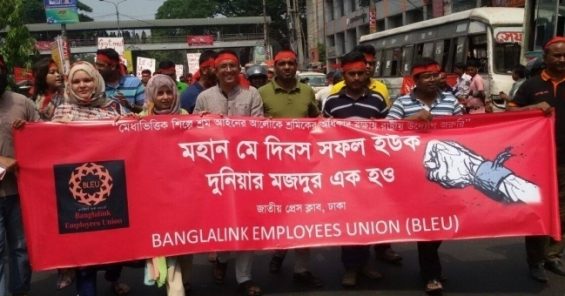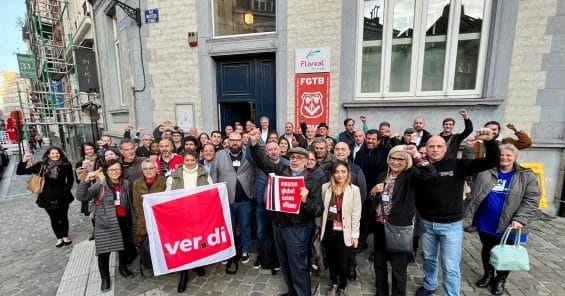They faced intimidation, firings, and numerous other obstacles to organizing, but workers at Banglalink, a subsidiary of Amsterdam-based telecoms company VEON, won the registration for their union from the Bangladeshi government on Monday.
The legal registration came one day before the Dutch National Contact Point (NCP) for the OECD concluded that VEON and its subsidiary failed to follow the OECD Guidelines in Bangladesh.
The NCP’s statement, released 11 February, was sparked by a complaint made by UNI Global union in 2016. UNI Global Union’s complaint alleged that the company harassed workers to suppress organizing with the Banglalink Employees Union (BLEU). Despite the difficult conditions, more than 30 per cent of the workers indicated support for the union, the threshold required under Bangladeshi law. But registration was withheld based upon the company’s unproven claim that there was a “mismatch” in the signatures, holding up registration for 4 years. In its decision, the NCP recommended several significant labour reforms to bring the company in compliance with the guidelines and promote freedom of association
Christy Hoffman, General Secretary of UNI, said, “This is a huge victory for Banglalink workers, but after four-years of struggle, the fight is not over. Banglalink workers should not have to wait another four years to have a fair collective agreement, and we call on VEON to adhere to the OECD Guidelines by negotiating in good faith and without delay.”
Hoffman continued, “The timing of this registration, one day before the NCP’s statement, is not a coincidence, and the Dutch NCP should be commended for dedicating extensive time and research to this case. Its job was made even harder by the fact that VEON became the first Dutch company to refuse mediation, a key part of the OECD process.”
The Bangladeshi government’s refusal to register workers’ legitimate unions, has been a chronic problem in the country, drawing an ILO complaint in 2016. However, there have been some signs that the pressure is working. Late last year, workers at another Bangladeshi telecom, Grameenphone, also won registration for their union.
“Beyond garment factories, workers in all sectors of Bangladesh’s economy are organizing because they want stronger protections, a dignified wage, and better conditions,” said Rajendra Acharya, Regional Secretary of UNI APRO. “This victory hopefully shows that companies operating in Bangladesh and the country’s government are starting to realize that collective bargaining is necessary social good.”
The OECD Guidelines for Multinational Enterprises are principles and standards for responsible. global business conduct. OECD National Contact Points are government-supported offices established to advance the effectiveness of the OECD Guidelines.
VEON is an Amsterdam-based multinational telecom company with 235 million customers and operations in 12 countries.


